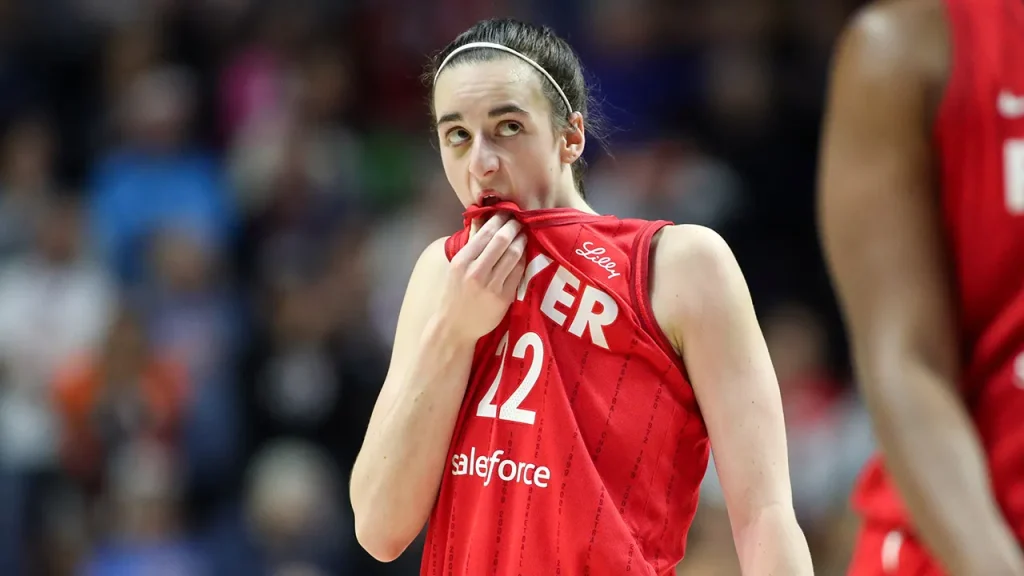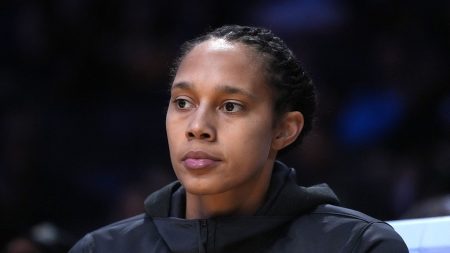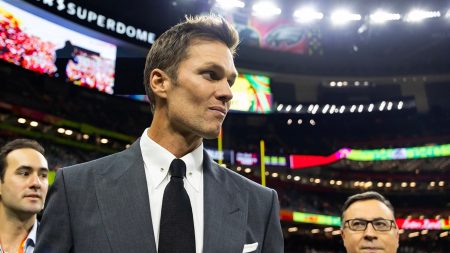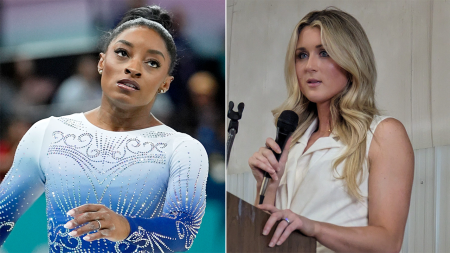The intersection of sports, social commentary, and identity politics ignited a fiery online exchange between former NCAA swimmer Riley Gaines and journalist Jemele Hill, sparked by WNBA star Caitlin Clark’s comments on benefiting from white privilege. Clark’s acknowledgement, published in Time magazine, ignited a whirlwind of online debate, drawing in figures like Gaines and Hill, who hold contrasting perspectives on the interplay of race, gender, and athletic achievement. The ensuing digital discourse rapidly escalated into a pointed and personal clash, underscoring the deep societal divides surrounding these sensitive issues.
The initial volley was fired by Hill, who criticized Gaines for her disapproval of Clark’s comments. Hill questioned Gaines’ commitment to supporting women, highlighting the apparent contradiction between Gaines’ advocacy and her criticism of Clark’s acknowledgement of the role of race in her success. This sparked a swift retort from Gaines, who mocked the concept of white privilege in the WNBA, a league predominantly composed of Black players. Gaines emphasized her admiration for players based on their skills rather than their racial identity, further fueling the escalating online feud.
The exchange quickly spiraled into a deeper examination of race and its influence in the WNBA. Gaines resurrected previous comments made by Hill, in which Hill argued that Clark’s race and sexuality contributed to her popularity. Gaines accused Hill of being a “professional race-baiter,” escalating the rhetoric and personalizing the attack. Hill countered by invoking Gaines’ well-publicized experience competing against transgender athlete Lia Thomas, suggesting that Gaines’ platform was built on this controversy.
This personal jab injected another layer of complexity into the already heated debate. Gaines’ experience with Thomas has made her a prominent voice in the ongoing discussion surrounding transgender athletes in women’s sports. Hill’s comment, linking Gaines’ advocacy to her encounter with Thomas, reframed the narrative, portraying Gaines’ activism as opportunistic rather than principled. Gaines responded by condemning Hill’s remarks as misogynistic, asserting that her advocacy stems from a desire to protect women’s sports, not from personal gain. This highlighted the profound disagreement on the issue of transgender inclusion in sports and its impact on female athletes.
The back-and-forth between Gaines and Hill exemplifies the broader polarization surrounding identity politics in sports. Their exchange touched on sensitive issues of race, gender, and athletic merit, reflecting the complex and often contentious societal discourse surrounding these topics. The rapid escalation from a discussion about Clark’s comments to personal attacks underscores the deeply entrenched divisions on these issues and the challenges of engaging in productive dialogue. The online nature of the exchange further amplified the intensity and reach of the conflict, showcasing the power and pitfalls of social media in shaping public discourse.
This particular exchange ended with Gaines’ pointed response, but it represents just one episode in the ongoing, multi-faceted debate surrounding identity and sports. Gaines’ previous online engagements with figures like Mark Cuban and Alexandria Ocasio-Cortez demonstrate her willingness to engage in these contentious conversations. Her active presence on social media, coupled with her outspoken views, has garnered significant attention and established her as a prominent voice in the conservative sports sphere. The ongoing debate highlights the increasing intersection of sports and social activism, transforming athletes and commentators into key players in broader societal conversations.










